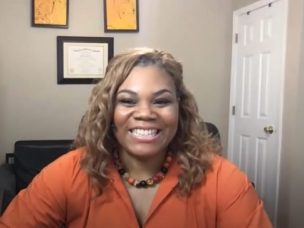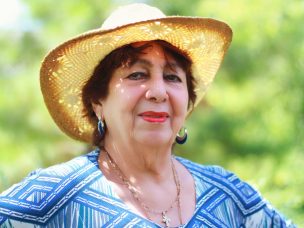Contributions
Dr. Mitzi Williams: NMOSD in Minority Patients
In this MD Newsline exclusive interview with neurologist Dr. Mitzi Williams, we discuss how NMOSD presents in minority patients. We also discuss the outcomes of minority patients with NMOSD. MD Newsline: How does NMOSD present differently in different racial/ethnic groups? Dr. Mitzi Williams: “NMOSD does not necessarily present differently in different racial/ethnic groups. Often, patients with...
How Age, Sex, and Race Impact Immune Profiles
This study, published in Blood, highlights the limited data on epidemiologic factors that impact immune profiles of patients with hematologic malignancies. The study’s flow cytometric analyses of different hematologic malignancy immune panels with regard to age, race, and sex will be presented at the 2021 ASH Annual Meeting & Exposition. Flow cytometric analyses of immune panels including...
Dr. Mitzi Williams: Risk Factors for NMOSD
In this MD Newsline exclusive interview with neurologist Dr. Mitzi Williams, we discuss risk factors for NMOSD, including patient genetics and sex. MD Newsline: Is there a genetic basis for why people of African descent seem to suffer more from NMOSD? Dr. Mitzi Williams: “With demyelinating diseases, including NMOSD, MS, and a condition called ADEM...
Promising New Drug for R/R Hodgkin Lymphoma
Findings from the expansion of a phase 1 study of tinostamustine in patients with relapsed/refractory (R/R) Hodgkin Lymphoma (HL) will be presented at the 2021 ASH Annual Meeting & Exposition. Tinostamustine is a developing therapy designed to improve drug access to DNA strands, induce DNA damage, and counteract DNA repair in cancer cells. A dose-escalation study...
NMOSD Treatment Adherence and Research
In this MD Newsline exclusive interview with neurologist Dr. Mitzi Williams, we discuss barriers to NMOSD treatment adherence and the latest research on treatments for NMOSD. MD Newsline: What do you think are the biggest barriers to NMOSD treatment adherence? Dr. Mitzi Williams: “The biggest barriers to NMOSD treatment are very similar to those that...
NMOSD Treatment and Differences From MS
In this MD Newsline exclusive interview with neurologist Dr. Mitzi Williams, we discuss how NMOSD differs from MS. We also discuss Dr. Williams’s treatment strategy for NMOSD. MD Newsline: How does NMOSD differ from multiple sclerosis (MS)? Dr. Mitzi Williams: “NMOSD can often be diagnosed with an antibody test, whereas MS cannot. Also, NMOSD primarily...
Diagnosing Neuromyelitis Optica Spectrum Disorder (NMOSD)
In this MD Newsline exclusive interview with neurologist Dr. Mitzi Williams, we discuss neuromyelitis optica spectrum disorder (NMOSD), why it is an important health issue, and how it differs from multiple sclerosis and anti-MOG syndrome. MD Newsline: Can you explain what neuromyelitis optica spectrum disorder (NMOSD) is and why it is an important health issue? ...
Treating Hodgkin's Lymphoma During a Drug Shortage
What can clinicians do to continue treating patients with Hodgkin’s lymphoma (HL) during a widespread shortage of the drugs typically used to do so? This study, published in Blood, reviewed this predicament experienced by hematologists/oncologists in Mexico from mid-2019 to mid-2021. The study will be presented at the 2021 ASH Annual Meeting & Exposition. During the drug...
ABVD Dose Reduction in Older Patients With Hodgkin Lymphoma
Classic Hodgkin lymphoma can usually be treated successfully in younger patients using ABVD (Adriamycin, bleomycin, vinblastine, and dacarbazine). However, older patients with the disease have a relatively poor prognosis, and ABVD’s efficacy and tolerability in this population are uncertain. This retrospective study, published in Internal Medicine, analyzed the outcomes of older patients with classic Hodgkin lymphoma treated...




